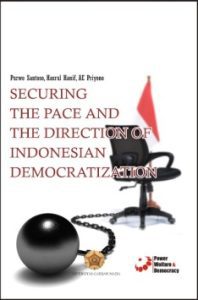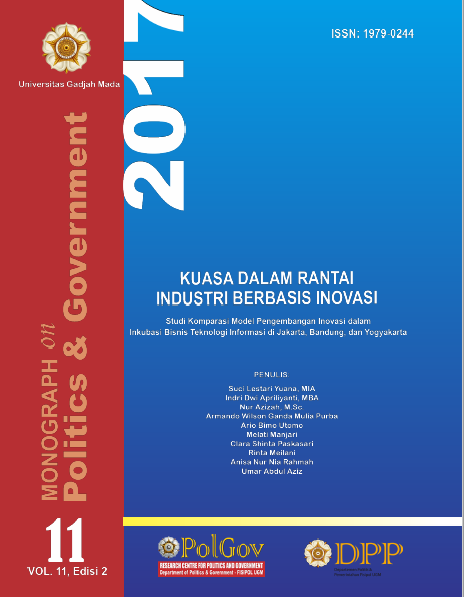
Securing The Pace and The Direction of Indonesian Democratization
Topik: Kekusaan, Kesejahteraan, dan Demokrasi
Tahun: 2016
Penulis: Purwo Santoso, Hasrul Hanif, AE Priyono
Penyunting: –
Deskripsi:
(IN)
Buku ringkas ini menjelaskan tipe-tipe kekuasaan yang bekerja dalam logika kesejahteraan dan demokrasi. Namun, apapun model demokrasi yang diterapkan, pda prinsipnya demokrasi ditandai dengan kapabilitas untuk mengontrol kekuasaan dan pada saat yang bersamaan melekatkan tipe kontrol tersebut pada akumulasi dan distribusi kesejahteraan.
(EN)
This concise book lays down a framework to explain the types of power relations operated in the logic of welfare and democracy.In principle, whatever the models look like, democratization is marked by the capability to control the power of the rulers and at the same tie control the accumulation and the distribution of public welfare.
Ringkasan:
(IN)
Buku ini menjelaskan tipe-tipe kekuasaan yang bekerja dalam logika kesejahteraan dan demokrasi melalui empat bagian. Bagian pertama mendiskusikan pentingnya keterlibatan dalam komunitas epistemik, selain untuk meneguhkan proses demokratisasi juga untuk memformasikan model demokrasi yang cocok dengan Indonesia. Bagian kedua mengeksplorasi sejumlah upaya membangun model demokrasi baru yang berbasis kesejahteraan serta menjelaskan relasi kuasa yang bekerja dalam logika demokrasi dan kesejahteraan. Selanjutnya, buku ini menyajikan identifikasi awal model penakaran baru demokrasi yang lebih hirau terhadap dimensi lingkungan. Seluruh paparan penjelasan ditutup dengan kesimpulan dan refleksi terhadap studi kekuasaan, kesejahteraan, dan demokrasi secara umum.
(EN)
This book is organized into four sections. The first discusses the necessity of involvement from among the epistemic communities in democratization not only for optimizing the process of democratization but also for formulating the proper model of democracy compatible to Indonesia. The second explores deeply the efforts in constructing a newly welfare-based democracy model and explains the power relations operated in the logics of welfare and democracy. Furthermore, this book provides initial identifications to set up new democracy assessment models that are aware of environmental dimensions. The explanation is closed by the conclusive statement and reflections of the overall studies on power, welfare, and democracy.





